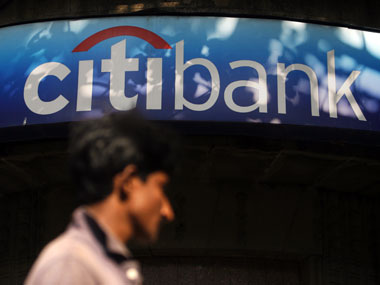The Reserve Bank imposed a fine of Rs 25 lakh on Citibank on Monday for violating its so-called know-your-customer (KYC) and anti-money laundering laws. Reason: one of its employees in Gurgaon duped around 40 wealthy investors by promising them high returns from a bogus investment scheme.
The fraud was perpetrated by Shivraj Puri, who took the money from gullible clients claiming Citibank was running a special Sebi-approved investment scheme and then routed the money for speculation in stocks. Even the Munjal-controlled Hero group managed to part with Rs 200 crore to invest in these bogus schemes. The total value of the fraud is estimated at Rs 400-plus crore. And the Sebi-documents were obviously forged.
Is the RBI barking up the wrong tree? One wonders how the central bank hauled up Citi for failure to follow KYC norms, when the fraud was perpetrated by one of its own employees -possibly with a wink and a nod from bosses and other employees. The services of a few other Citi employees were terminated in the wake of the fraud.
The truth is that the KYC requirements are fairly mindless - they are intended to trouble the honest customer, who will run from pillar to post to satisfy the norms, while the fraudsters simply fake the documents to get around the law.
If I were the Reserve Bank of India, I would impose a Rs 25 lakh fine on the person who invented the KYC rules - for some of them are simply not possible to comply with.
The key problem for urban residents is the address proof one requires under KYC to do anything - whether it is to open a bank account or apply for a PAN card or a driving licence or a demat account or even a mutual fund account.
Proof of address usually comes from passport, driving licence, demat account, electricity bill, telephone bill, or even a bank account statement. But since passport, driving licence, bank account and demat account require the same address proof, it is like chasing your own tail.
You can prove your address only if you already have a document saying this is your address. And you can’t get that document without already having another document which says this is your address. Smart, really smart.
At the fundamental level, an address proof basically comes only from buying or renting a house in your name. But then, this means your spouse or adult children living with you are stuck for their KYC.
This circular nature of proof amounts to a stupidity in the KYC requirement and the RBI surely should have thought about it a bit before mandating it. Nandan Nilekani’s Unique ID project will not solve this problem, for it is about ID, not address proof.
I know the kind of problems I have had trying to prove my wife and daughters live with me. Though recent changes in rules allow banks to accept blood relatives on the basis of the same address proof as their parents or spouses, this message has not really percolated among staff - who continue to slavishly demand passports and driving licences.
The rule relaxation, of course, is not enough. For it still leaves paying guests or relatives staying with you-a not uncommon phenomenon in Indian families-without documentation to open a bank account. I know a senior journalist who receives all his communications and bank statements at the office address because he does not have address proof where he stays.
Not surprisingly, many people have dubbed KYC as “ Kick your customer ”, given the kind of run-around the public gets from this rule.
As for Citibank, its problem was not KYC, but KYE - Know Your Employee. It ought to have been fined for not knowing what its employees were upto.
Dr Subbarao, I know the Reserve Bank has loads of other worries-the government’s fiscal deficit, inflation, etc-but KYC is bugging many people too. Do something.


)




)
)
)
)
)
)